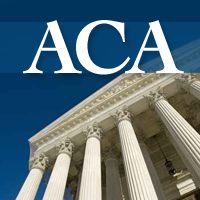Article
Massachusetts: An Affordable Care Act Mini-Me
Author(s):
In 2006, Massachusetts passed a healthcare insurance reform law that resembled the federal Affordable Care Act (ACA) in many ways.

In 2006, Massachusetts passed a healthcare insurance reform law that resembled the federal Affordable Care Act (ACA) in many ways.
Its impact?
Massachusetts now has the nation’s lowest uninsured rate, and it ranks #3 in patient satisfaction.
Many physicians have voiced concerns that the ACA might negatively impact case volume and reimbursement for physicians, and neurosurgeons have been particularly concerned. The March 2016 issue of the Journal of Neurosurgery includes a study that examines neurosurgical procedures by type and patient insurance status in Massachusetts before and after the state implemented insurance reform.
The Massachusetts State Inpatient Database tracks patients who undergo neurosurgical procedures and other healthcare. The investigators used this data from 2001 through 2012. They identified patients' insurance status (insured or uninsured) and the numbers of procedures performed classified by ICD-9-CM neurosurgical procedural codes.
They sorted neurosurgical procedures by four types: tumor, other cranial/vascular, shunts, and spine. The investigators also used data from New York State as a control.
Beginning in 2009, the numbers of uninsured patients who underwent neurosurgery in Massachusetts declined in all four categories. Tumor and spine procedures remained constant, but other cranial/vascular procedures increased. Shunt procedures decreased after reform law implementation, but the investigators found similar decreases in the control group.
In New York, the number of spine surgeries and procedures performed on uninsured patients increased. Other cranial/vascular procedures decreased.
The investigators indicated that their most important finding was that the total number of surgeries performed did not change dramatically. In some aspects, reimbursement improved after Massachusetts’s health care reform.
If the nation’s experience with the ACA follows the Massachusetts trajectory, surgeons may see positive changes. The investigators noted that neurosurgeons frequently treat patients in emergency situation, so their neurosurgeon’s experience may not easily extrapolate to other specialties.




